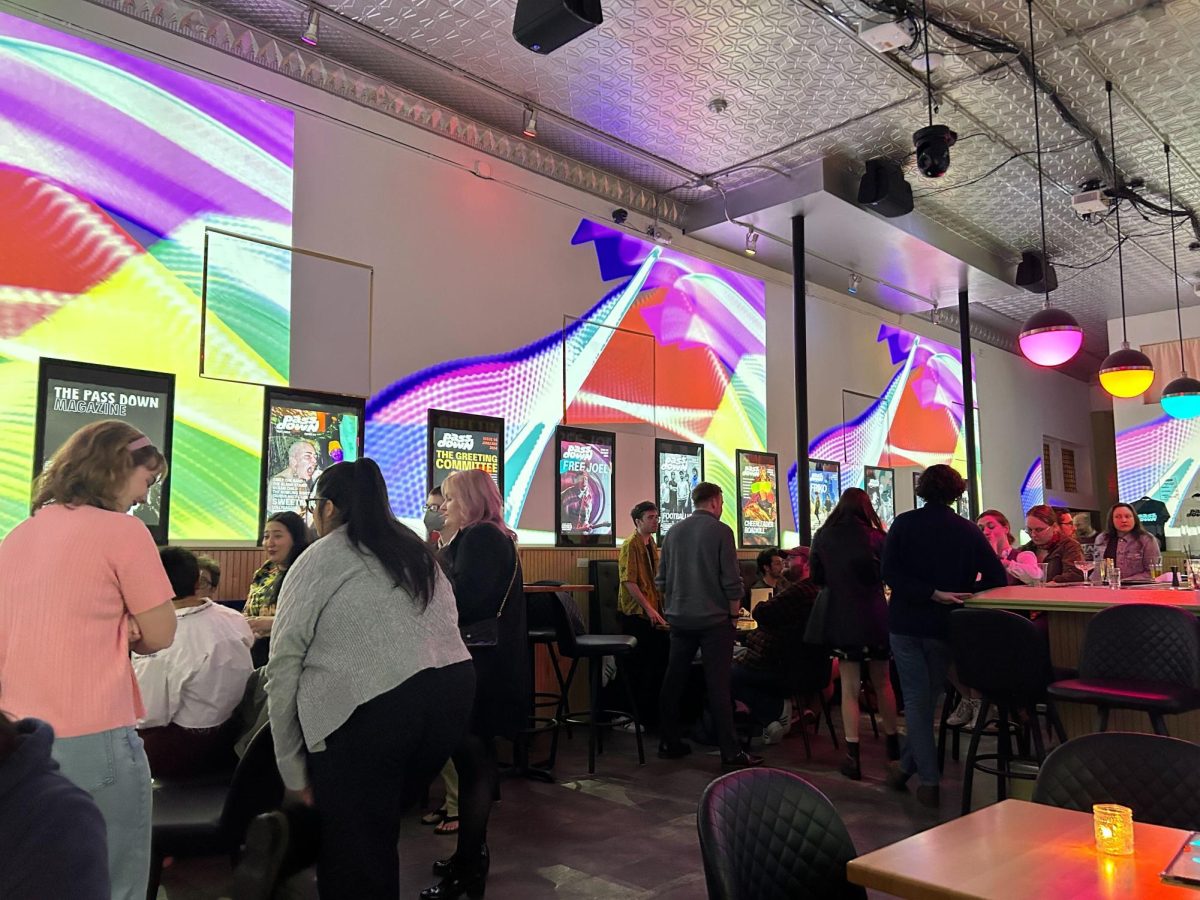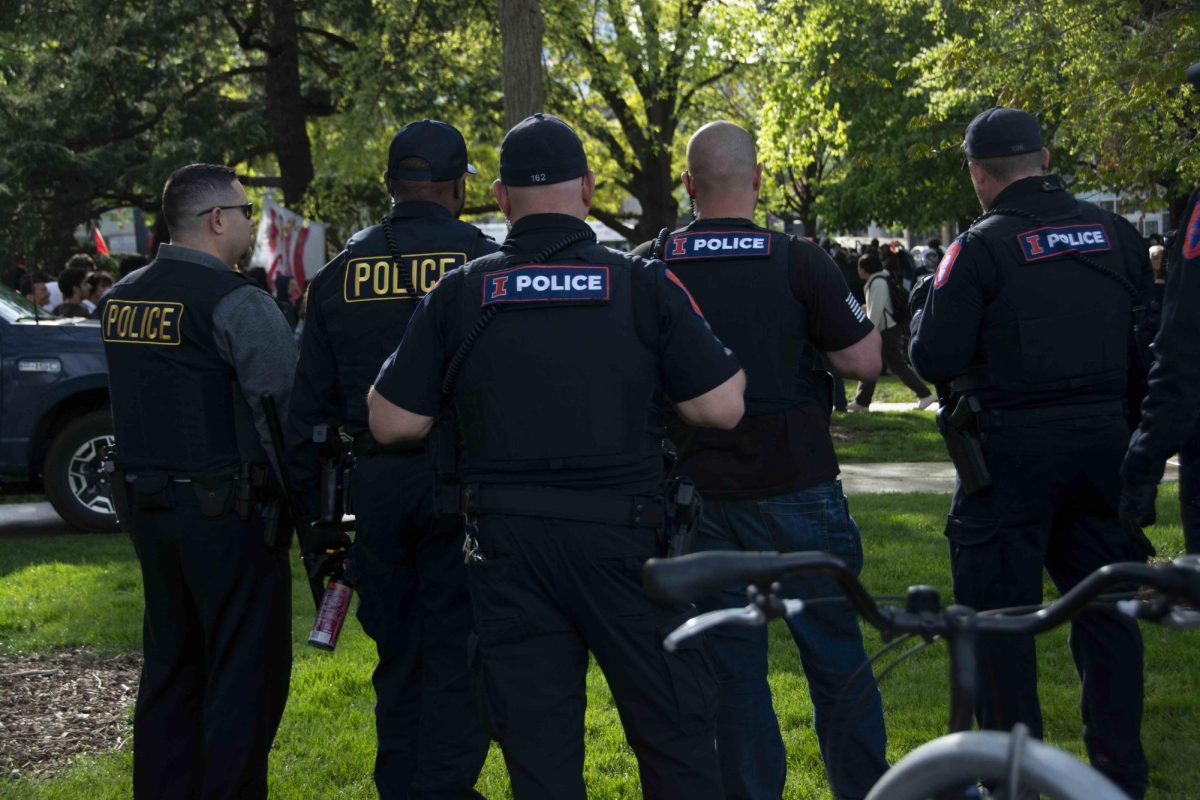Editor’s note: This article has been clarified from a previous version. The “association” teaming up with Students in Free Enterprising is the Illinois Green Business Association.
In an effort to increase commercial recycling from roughly one-third of its businesses, Urbana may require all waste haulers offer recycling services to its commercial clients.
Whether customers actually contract these services, however, would be at each business’s discretion.
Out of three other options, including forcing businesses to recycle, developing a separate city program or doing nothing, city staff recommended this method of increasing recycling because of its capacity for implementation within a shorter time frame, said Bart Hagston, Urbana’s environmental sustainability manager. Also, haulers did not have any major objections with the proposal, according to a survey conducted in November.
“(Commercial recycling) is a much more difficult thing to tackle because of the wide range of commercial establishments,” said Charlie Smyth, Ward 1.
Get The Daily Illini in your inbox!
Urbana’s single family recycling program, U-CYCLE, has been in place since 1986, which made Urbana one of the first cities in Illinois to have curbside recycling.
“The commercial program is kind of a natural extension of those programs that we already have in place,” Hagston said.
Some council members, including Smyth, said the chosen option was not as aggressive as they would have liked. To ensure businesses reach 100 percent participation, the proposal was amended so that the program will be reviewed in two years. In five years, the council hopes to make commercial recycling mandatory. A mandatory commercial recycling policy, however, was not unanimously endorsed among council members.
“I think that in our business climate, in Urbana specifically, we need to be very mindful of being business-friendly,” Heather Stevenson, Ward 6, said at the Jan. 10 meeting. “Mandatory recycling could be seen as anti-business-friendly.
For a lot of Urbana’s small businesses, the decision to recycle is not made on an economic basis.
Allen Strong, owner of Courier Cafe and Silvercreek Restaurant, said it costs more in fossil fuels to prepare and haul the recyclables than what they are worth.
“These are really great ideas and great feel-good systems and things that we want to work to create a better earth and a better environment,” Strong said. “But until we think of ways to make it viable, you’re just spinning your wheels.”
Although many businesses already recycle, some see the benefit of having an organized system to simplify the process and, therefore, make it more adaptable to business operations.
In cases of businesses such as Shared Space, an artist co-op with low levels of waste output, director Susan Pryde said she avoids the complications of hauling by taking waste material home to recycle.
Besides not having a lot of recyclable material, recycling can be also be seen as a hassle under a nonintegrated trash and recycling policy. Having a unified program would make it easier for businesses, such as Common Ground Food Co-Op, that pay extra for recycling.
“It costs us a little more to recycle (than garbage disposal),” said Jacqueline Hannah, Common Ground general manager. “It’s part of our values more than it saves us money.”
Hannah said Common Ground has been recycling for at least the past 15 years but has to use two different hauling services for the different types of recyclable materials.
“It would probably make (recycling) easier if it was a centralized program,” she said. “(And) probably more cost-effective.”
To help increase incentive, the council has asked staff to look into different methods of education. Urbana staff has also been informally assisting businesses as needed with managing their waste stream. Also, the creation of a recognition program to honor local businesses that recycle was discussed at the Jan. 10 Committee-of-the-Whole meeting. The Illinois Green Business Association plans to team up with Students in Free Enterprising and set up booths along Green Street for a “Go Green on Green Street” event that will ask local businesses to take pledges to make eco-friendly changes.
“It’s a much more flexible program to get started, and because of that, education is going to be an important component,” Smyth said.
Smyth said the council hopes to have everything in place with the commercial recycling ordinance by April so the city can have a combined educational campaign.
Now that the ordinance has the council’s vote of initial support, legal staff will craft the final ordinance in the next few weeks for approval.
In observation of Martin Luther King Jr. Day, the Urbana City Council has moved their weekly meeting to Tuesday, Jan. 18.




